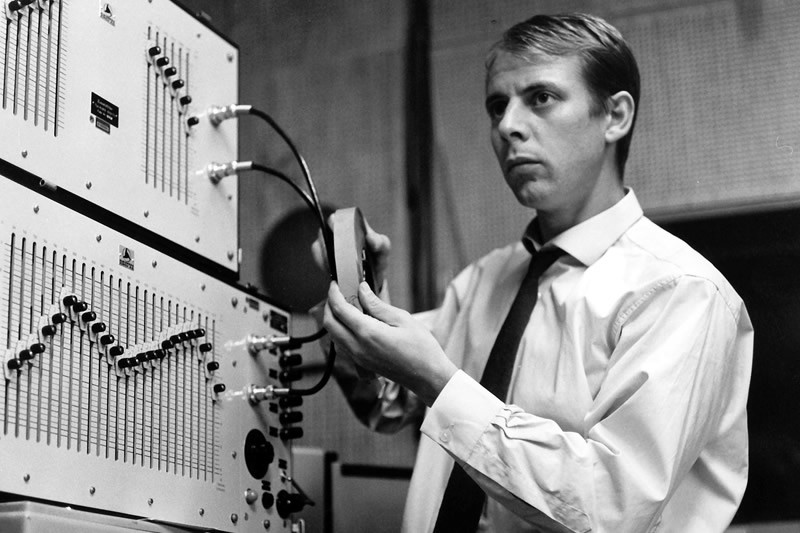Karlheinz Stockhausen
Karlheinz Stockhausen (1928-2007) was een Duitse componist. Hij wordt beschouwd als een van de invloedrijkste componisten uit de tweede helft van de 20e eeuw.

Stockhausen studeerde zowel piano als musicologie, filosofie en Duitse taalkunde. Hij overwoog eind jaren veertig serieus een carrière als schrijver en ontving zelfs aanmoedigingsbrieven van Hermann Hesse. Pas in 1950 nam hij zijn eerste compositielessen bij de Zwitserse componist Frank Martin en in de zomer van 1951 volgde hij cursussen nieuwe muziek in Darmstadt. Daar werd hij gegrepen door het serialisme. Het jaar daarop studeerde hij in Parijs bij Messiaen en plaatste hij zichzelf met enkele baanbrekende werken in de voorhoede van de nieuwe muziek.
Vanaf de tweede helft van de jaren vijftig behaalde Stockhausen grote artistieke successen met een vrijere benadering van de seriële uitgangspunten. In de WDR-studio in Keulen (waarvan hij in de jaren zestig de directeur was) experimenteerde hij met elektronica, en daarbuiten met de plaatsing van orkest en publiek, met extreme tempi en met muziek van over de hele wereld. In 1964 werd een ensemble opgericht dat zich exclusief bezighield met de uitvoering van zijn werk, en in 1970 ontstond zijn eigen muziekuitgeverij.
Meer weten? Lees een introductie op Stockhausen.
Lees artikelIn de jaren zeventig nam zijn benadering van muziek een uitgesproken kosmische wending: hij wilde uitdrukking geven aan zijn verbondenheid met de kosmos, de natuur en zijn medemens. Met LICHT(1977-2003), een cyclus van zeven grootse muziektheaterstukken over de verschillende dagen van de week, creëerde hij een werk dat het hele leven moest omvatten. Van 2003 tot zijn dood werkte hij aan KLANG, een vergelijkbare cyclus over de uren van de dag.